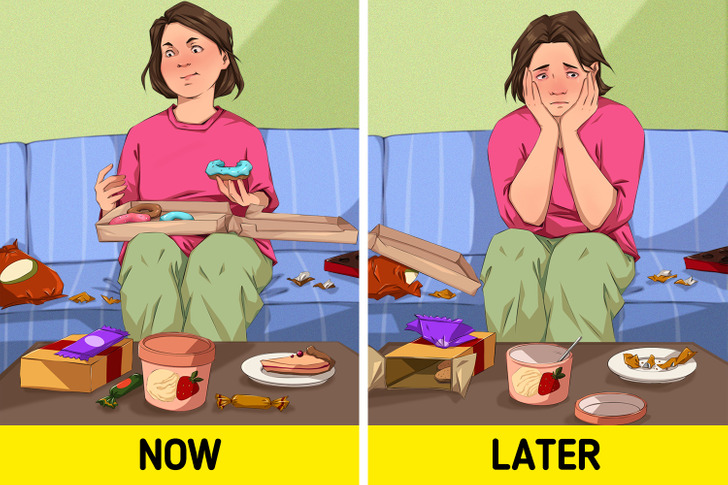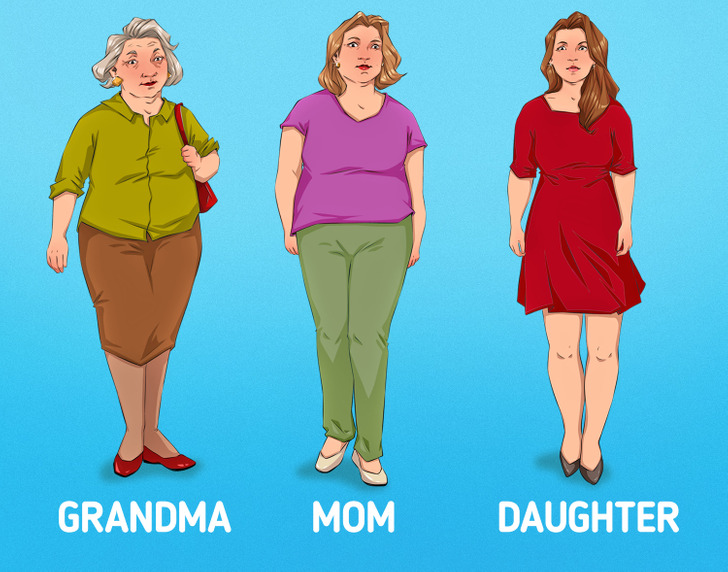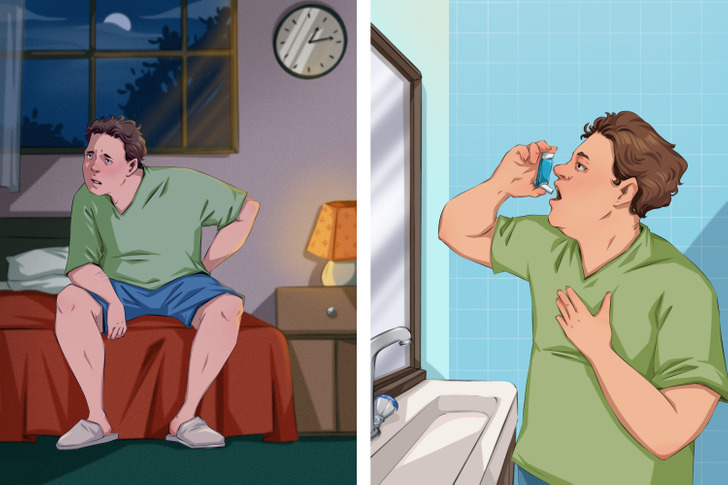Binge eating disorder (BED) is something that affects 2% of the population worldwide. Most people who suffer from it will go on food binges for a couple of hours at a time without thinking about the consequences. It’s not just about eating as much as possible, but for many who suffer from it, it involves covering up deeper psychological issues. It’s a defense mechanism that can create an array of other problems.
Bright Side feels like it’s important to know the basics of this disorder in order to be able to identify and address it. And you should make sure to visit a medical professional if you recognize signs of this disorder.
The symptoms of BED
- You eat large amounts of food during a limited amount of time, such as a 2-hour window frame.
- You eat even if you are not hungry to the point where it becomes extremely uncomfortable.
- You eat at an extremely fast pace and oftentimes hide your eating episodes from people around you.
- After your eating episodes, you feel guilty, ashamed, and depressed about what you’ve just consumed.
The risk factors
There are quite a few reasons why someone might be dealing with this disorder.
- Genetics: On many occasions, the disorder is inherited and has to do with dopamine. This is the chemical in our brain that is connected to reward and pleasure, and some people have an increased sensitivity to it.
- Brain changes and gender: Yes, women are more susceptible to BED than men. In the US alone, 3.6% of women suffer from it, compared to 2% of men. Also, those who have the disorder seem to have an altered brain structure and less self-control over what they eat.
- Body image issues and obesity: People who binge eat usually have a very negative opinion about their bodies and, in many cases, are overweight.
- Psychological issues: Childhood trauma, phobias, depression, or PTSD can cause people to turn to food as a coping mechanism.
The health risks
Almost 50% of those suffering from BED are also obese, putting themselves at very high risk for multiple health problems. Diabetes, sleep problems, chronic pain, asthma, and irritable bowel syndrome are some of the most common issues. Due to these factors, they are more likely to end up at a healthcare facility to be taken care of. Also, people suffering from BED have reported having trouble with social interactions.
Ways to prevent it
Preventing binge eating disorder isn’t actually possible, but there is a way to address it early on. If you notice any of the symptoms mentioned above, you can turn to your doctor for advice and treatment options. If you have a child and notice from early on that their relationship with food is getting unhealthy, you should talk to a medical expert. Tackling the issue in its early stages will help you and your kid identify and treat it.
Treatment options
- Cognitive-behavioral therapy: If your binge eating stems from suppressed issues, you will need to first address these problems and then figure out the food consumption. You will need to regulate your negative feelings and get your control back in order to be able to limit your food intake.
- Dialectical behavior therapy: With this method, you will learn to tolerate stress better and improve your relationships with others. If these are the reasons that push you to binge eat, you will see that there is a healthy way to address the issues.
- Medications: This may be the last thing you want to try, but there have been instances where medications have reduced binge eating episodes. However, they might not be successful with weight loss. In any case, you should always consult with your doctor and make sure that you are under their supervision.
What is your relationship with food, and do you know of anyone that has an unhealthy back and forth with it?















